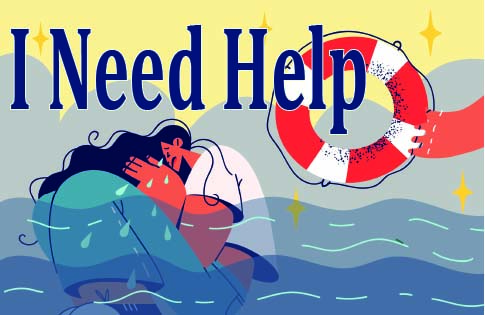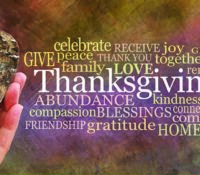By Tim McLeod, NCRC-II Director of Alumni Relations & Connect365, Sierra Tucson Today and Through the Upcoming Holiday Months Ahead, Harness Your Recovery Strength Through Resolve & Resilience You may...
By Tim McLeod, NCRC-II
Director of Alumni Relations & Connect365, Sierra Tucson
Today and Through the Upcoming Holiday Months Ahead, Harness Your Recovery Strength Through Resolve & Resilience
You may or may not remember the first time you said the three most important words in your recovery journey. I Need Help. You may have never said them out loud. Or, you may have used different, yet similar, words to reach out. Or you may have only thought them, tossing them around in your head over and over before you acted.
Or, you may have not said them yet.
I Need Help may be the hardest words in the English language. Yet those words are the common threads that bind us all together within the recovery community. Whether we have said them out loud to someone else or we have only uttered them to ourselves, what I have witnessed with the thousands of alumni who are part of the Sierra Tucson community is that recovery starts there with those simple words.
Yet the words mask something more difficult. They mean nothing without action. It is in taking the little steps toward recovery where we have the greatest potential for making the biggest gains. Mountain climbers take one step at a time. Getting to the peak isn’t one leap. It is a series of upward movements toward the goal. The same is true in recovery.
Wherever you are in your recovery journey — whether you have even started or not – the important thing to realize is that recovery will be uncomfortable. Our brains prefer the path of least resistance. After all, by its very definition, the path of least resistance is the easiest and most comfortable choice. Self-improvement doesn’t always feel good at the start. Yet a sure recipe to stay where we are is to stay tucked securely within our comfort zone. Stepping out feels frightening. Yet there is freedom waiting on the other side. That is the catalyst that helps you evolve into the best version of yourself. Embracing discomfort is a vital part of that evolution. When it comes to addiction recovery, surrendering to discomfort is necessary to achieve and maintain abstinence, clean time, and sobriety.
When it Comes to Recovery Ask Yourself: Am I all in?
In recovery, being “all in” requires a commitment. It is a daily decision. You can’t be committed one minute and not the next. A founding premise in practicing recovery is to seek a Higher Power for support, stability, and guidance. I call that staying vertical. Staying vertical is like being in alignment with oneself as opposed to looking all around you for validation. When you look around to others, I call that horizontal living. It is when you become preoccupied by worrying about and wondering what other people think. We have all done it. Yet being concerned about appearances and how someone may react to the actions that we know we need to take to help ourselves is the wrong approach. Every time we do that, we step further away from ourselves and our needs.
Horizontal living is also when we try to do things on our own, when we fall prey to the illusion of our own control. It is when we wrongly think we can control the outcome and that we don’t need others because we have all the answers. Recovery is the opposite. It is not only about surrendering to discomfort, but it is most active and thrives best when we are in community with others who are there to bolster and support us. At Sierra Tucson, we call that community of support “our tribe.” These are the people we can trust to keep us accountable and on track.
How do we ensure we are “All-In when it comes to recovery?
Being “all-in” means:
Building a trusted tribe around us. Our tribe are those people who know us better than anyone else. They are our “family of choice.” We can feel safe around them knowing being who we are and putting our heart out on the table is not going to garner ridicule or make us feel “less than.” At Sierra Tucson that tribe can form from the friendships made in treatment. Within our walls or within your own community of support, those are the people who nod their heads up and down as you share your stories, your weaknesses, and your fears. It is a confirmation that we are not terminally unique. They completely understand and support where you are coming from because they too have been there. That is why the 12-Step community uses the concept of sponsors as an important basis for recovery.
Staying Connected with Others. Isolation is dangerous to those of us in recovery. It is why I hosted hundreds of Zoom support groups several times a day during the pandemic. Isolation is the enemy and launches us into a place where we marinate and give false validation to the precarious thoughts in our own heads, creating self-doubt, building negativity, and giving rise to unending self-criticism. I recommend getting out of your head and getting in your herd instead. Even better is staying in the middle of the herd. Envision a herd a zebras. Those in the middle are the safest from predators. The same is true in our relationship with relapse. When we find ourselves not connected to our herd or falling away, relapse awaits on the outer edges.
Nurturing Your Emotional Sobriety. Staying within the right frame of mind means spending alone time doing things that keep your mind connected to your recovery goals. Meditating, journaling, reading, and praying are all ways to keep your mind in the right place. Our emotional sobriety is key in helping us address the negative emotions which may have led us to addiction in the first place. Beware of negative emotions, they often lead to relapse. So, paying attention to our emotional sobriety and how we manage our thoughts and emotions is central to maintaining a healthy mindset.
Not Holding Back. In the game of chess, we have a strategy. We don’t give our opponent a hint to all our moves. We hold back and keep a move or two in our back pocket. That’s okay when we are playing a game. It is not okay when we are making a commitment toward a new lifestyle of recovery. Being all in means being honest, not keeping secrets and not making a half-hearted attempt.
Recognizing Your Assets and Cultivating Gratitude. The surprising thing about the journey of recovery is that gifts and blessings will unexpectedly surface along the way. In fact, where we end up is often far beyond what we could have ever hoped for or imagined. It is easy to wish we had more material things or that our lives would look different or not be such a struggle. It is easy to think what did I do wrong? How did I end up the way I am? It is easy to look around horizontally and compare ourselves to others and feel that we don’t measure up. Social media does us no favors in that regard. Instead, consider taking inventory of the good things, the assets in your life. Good health, family, a steady job, a pet that you dearly love, the friends you have made along the way, or whatever it is that you can put in that asset column. Then share those things with others. Don’t just write the list down and put it away. An attitude of gratitude will help us move through life without the burdens we accumulate when we look at ourselves and pity our circumstances. Keep a gratitude journal or a gratitude jar that you fill each day with a slip of paper that reminds you what went right today.
“First… I do not make “New Year’s Resolutions” anymore. It was way too easy to focus on the negative, like, “I can’t believe I have made this resolution two years in a row and have to do it again,” or to think about all the ones I didn’t accomplish and see myself as a failure. This year, on December 31st, I am going to sit down with a pen and paper and actually write out all of the things I have accomplished in this past year, and just reflect on what a different person I become each year; to see how much I have grown and changed and learned. On my “accomplished list” on the 31st is going to be how much my self-awareness, self-worth, and honesty have increased! And how much I have allowed myself to be humble and open to learn new things!”
~Suzanne H., Sierra Tucson alumnus
Living a Recovery Lifestyle During the Holidays
The fall and winter seasons usher in the changes in weather that some love and others dislike. It brings the adoration and consumption of pumpkin spice lattes and the dreaded (or eagerly anticipated) Black Friday sales. The flipping of the calendar means classic social gatherings that for some people signify the most wonderful time of the year. For others, it is a time marked by anxiety and grief.
Whether it is Thanksgiving at the in-laws, the office holiday party, Christmas, Chanukah, or other holiday style events with family, the scene is almost always the same. Abundance and expectation. Food and drinks aplenty, socializing that is highlighted by the clinking of glasses and festive merrymaking that too often involves temptations to act out. For those of us who practice recovery a lifestyle, our attention is on avoiding relapse, maintaining our resolve, and staying true to our goals that have gotten us to where we are so far. That is why for those of us in recovery, the holidays are something to manage.
Yet recovery from alcohol isn’t the only struggle. There are others of us who maneuver through the holidays with a shroud of trauma hanging over us. It could be the grief of a loved one we once spent the holidays with whom we have lost through divorce, death, or estrangement. It could be having to face Uncle Morris whose mere presence surfaces dreadful reminders of abuse or assault. Whatever the pain we manage, getting through it is our ship to sail knowing we are ultimately the ones in charge of the direction we go.
Rule #1 “Learn to Say No”
How do we harness our own power when social pressures build up to create a tsunami of expectations on what we do, where we go, what we eat and drink and with whom we socialize? Consider this creed to live by during the holidays and everyday: the word “no” is a complete sentence. Avoiding putting ourselves in a situation that invites the potential for relapse can be as simple as that one word. “No.”
“No, I cannot attend the company gift exchange and party at the boss’ house this year.”
“No, I cannot go to Aunt Marge’s and Uncle Ed’s for Thanksgiving this year.”
“No, I am not able to drive to the mountains with the family for the annual ski weekend.”
Notice there are no reasons provided. The final answer is just “No.” Justification to others is not necessary. Saying no means you have assessed the situation and chose to think “vertically” and not getting caught up in looking around to wonder what someone will think or how they will react to your decision (noted previously as living “horizontally”).
Rule #2 “Drive Yourself”
Choosing to attend various gatherings involves another decision: getting there and returning home. Resist the option to ride along with someone else. Maintaining the ability to leave when needed means grabbing the car keys and driving yourself, and many times, driving alone. Picking up cousin Marvin on the way to Aunt Edna’s annual turkey barbecue & pie fest delivers a potential risk of giving in when Marvin decides he wants to play one more round of poker with the uncles or hang out for that last quarter of football game when you know what is best for you is to leave. By controlling your arrival and departure as you need ensures you manage your own experience when it becomes too risky for your emotional health or your sobriety to stay.
“Whenever I go into a potentially slippery situation—such as holiday parties with alcohol, family, childhood memories, or other triggers—I make sure I have an escape route. I always drive my own car or have someone on call to pick me up if I start to feel uncomfortable.”
~ Cason L., Sierra Tucson alumnus
Rule #3 “Bring Along Support”
Rule #3 may seem counter to Rule #2. Choosing to bring a support companion along that keeps you accountable is different than bringing along Cousin Marvin, unless of course, Cousin Marvin is a key part of your “inner circle” or your “tribe.” Bringing along a supportive member of your tribe to come with you, who is traveling the recovery journey along with you, offers support that provides accountability, keeps you on the straight and narrow, and offers you assurance that together you are in control of your experience.
“My sponsor always taught me to have an escape plan when attending “slippery” events such as holiday parties, so I always notify my wife that I may need to leave if things start to get sketchy. I also try to be in service to my friends and wife, who may choose to indulge on the holidays, and remain the designated driver. I always bring my cell phone so as to be able to call someone from fellowship. My disease never observed the holidays, so it is business as usual. I stick with my meeting schedule, add meetings on the holidays or before and/or after family gatherings so as to stay accountable to the program. Staying in gratitude and remaining present helps me enjoy the holiday season to its fullest.”
~Jeff B., Sierra Tucson alumnus
Wherever you are in the recovery journey, I remind you that you are not alone. We are all works in progress today and through every holiday on the calendar.
Underneath our addictions, our pain, our traumas, and our self-doubts there are more of us out there and more support than you can ever imagine. At Sierra Tucson we remind people as they drive into our facility through our gates to Expect a Miracle. When they leave, we remind them with another sign – You Are a Miracle.
If you want to learn how to start your path of recovery to find your own miracle, contact me at [email protected]. For more on Sierra Tucson visit www.sierratucson.com




























